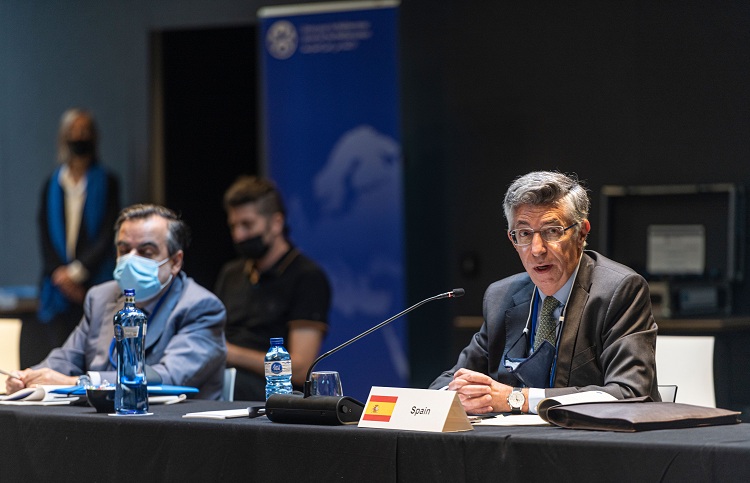The Diplomat
The member states of the Union for the Mediterranean (UfM) have approved a new regional initiative to support access to higher education for refugee and displaced populations.
The initiative was approved on October 21 in Barcelona, during a meeting of senior officials from the Ministries of Foreign Affairs of the member countries, which also discussed preparations for the sixth UfM Regional Forum and the first edition of the Mediterranean Day, to be held on November 28. Spain was represented by diplomat Manuel Gómez-Acebo, former Director General of Foreign Affairs for the Maghreb, Africa, the Mediterranean and the Middle East and Ambassador to Israel until last August.
Only 1% of university-age refugees worldwide have access to higher education. To address this problem, and contribute to UNHCR’s goal of increasing the number of refugee students to 15% by 2030, the Global Platform for Higher Education has received the endorsement of the 42 UfM member states for its project Implementing a Rapid Response Mechanism (RRM) for Higher Education in Emergencies in the Euro-Mediterranean Region.
“Universities and research centers cannot be underestimated as powerful engines of growth,” said UfM Secretary General Nasser Kamel. “They act as nerve centers and nurseries for bold, brilliant and groundbreaking forms of innovation that our society thrives on,” he continued. “We must seek to exploit this natural resource to the fullest, enabling our young people to pursue their ambitions in higher education and beyond,” he added.
In response to the global emergency created by the COVID-19 pandemic, this initiative helps the refugee and displaced population gain access to institutions of higher education, building on their capacity to receive foreign students. The 36-month project aims to deploy two-year emergency scholarships for each of the 300 selected students, and will be implemented in ten countries (Egypt, France, Italy, Jordan, Lebanon, Morocco, Poland, Portugal, Spain and Turkey), involving mainly, but not exclusively, Syrian refugees. The scholarship program will pay special attention to the empowerment of young women and to studies that correspond to the needs of the new digital age.







